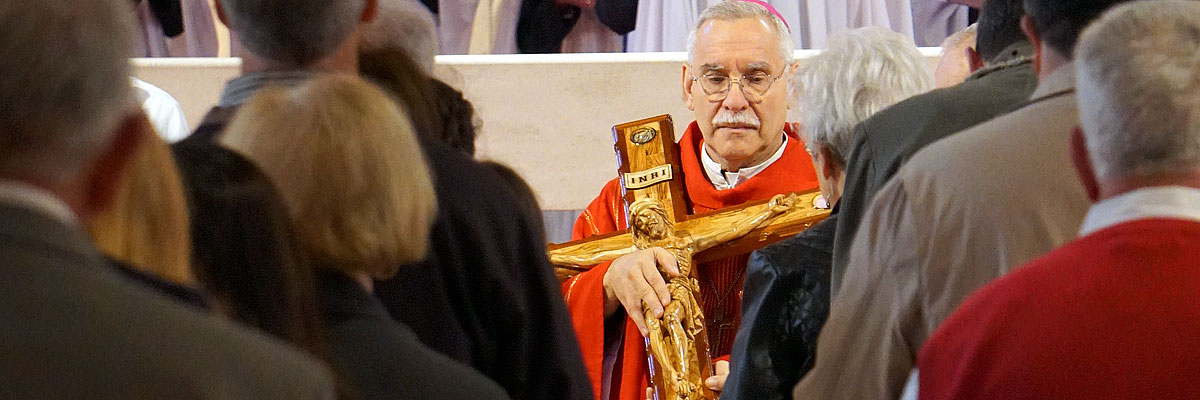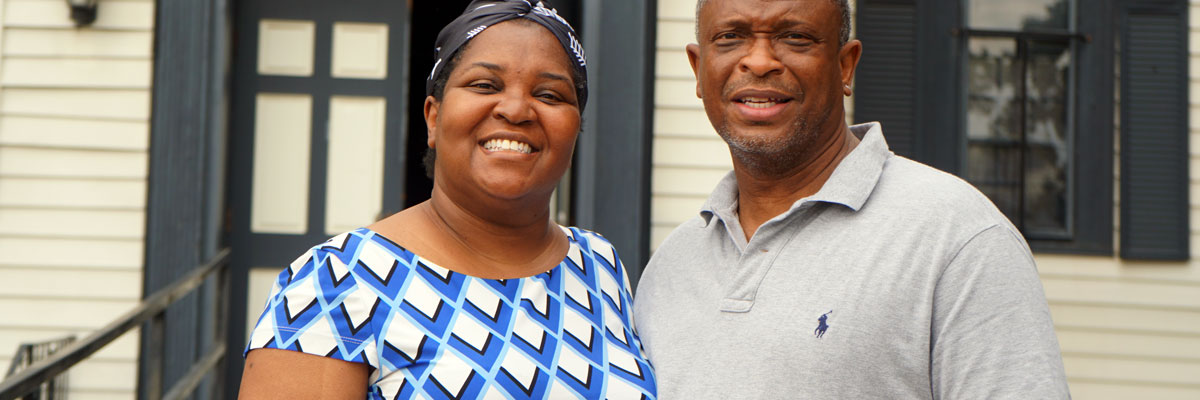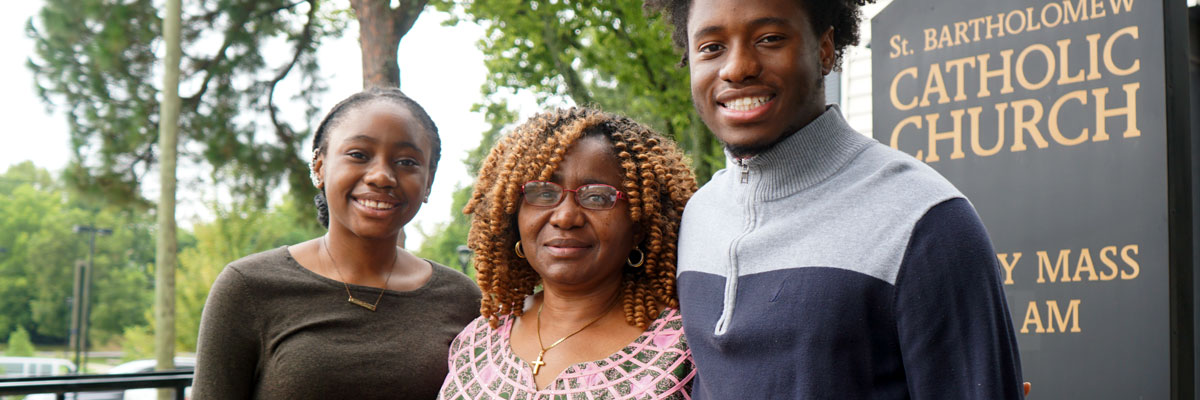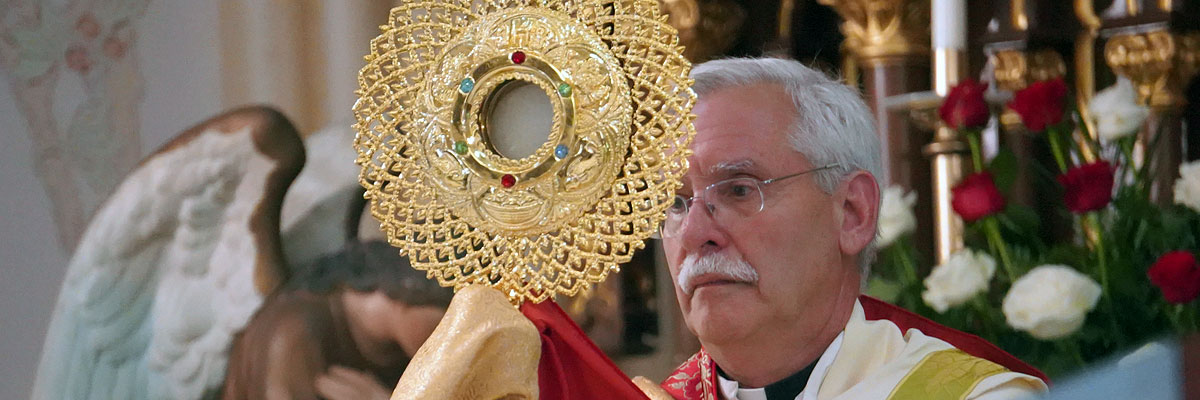Official Website of the
Catholic Diocese of Little Rock
16th Sunday in Ordinary Time, Year B
Published: July 22, 2018
Bishop Anthony B. Taylor preached the following homily in Ponca City, Oklahoma on Sunday, July 22, 2018.

Bishop Taylor
When we were growing up we had a dog named Hobart who was very protective of us children — indeed, too protective — to the point that we had to keep a muzzle on him because he kept biting other kids in the neighborhood.
This protective instinct may have come from the fact that he was part German Shepherd. German Shepherds were sheep dogs, bred to help human shepherds in their work of keeping the flock together and moving forward, locating and retrieving lost sheep that had strayed, and protecting the sheep from wolves and other dangers — those are the tasks of a shepherd and his dog.
Today’s first reading uses the image of a shepherd to describe two different outcomes for God’s people according to the goodness or wickedness of their leaders.
The crozier I carry as a bishop is a shepherd’s staff to remind me that I am the chief shepherd of the portion of God’s flock that is the Diocese of Little Rock. But actually, Jesus is your true shepherd. He’s the one leading the flock where we need to go. I’m just his German Shepherd.
1.) Bad shepherds are concerned only about their own advantage and neglect or even abuse the flock, mislead them and let them scatter. The sheep have reason to fear such shepherds in the present and these bad shepherds have reason to fear punishment in the future.
2.) Good shepherds, on the other hand, govern their sheep wisely and take good care of them. These sheep are secure and safe in the present, and their shepherds will be rewarded in the future for their faithfulness and self-sacrifice.
In today’s Gospel we see that Jesus is our Good Shepherd par excellence. The crowds that flocked to him in today’s Gospel had up to then been shepherded poorly by the leaders of the day. They were like sheep without a shepherd: scattered and lost. So, moved with compassion, Jesus began to shepherd them himself and began to teach them many things.
The crozier I carry as a bishop is a shepherd’s staff to remind me that I am the chief shepherd of the portion of God’s flock that is the Diocese of Little Rock. But actually, Jesus is your true shepherd. He’s the one leading the flock where we need to go. I’m just his German Shepherd.
My role is to keep the flock together and moving forward, locate and retrieve the lost sheep, nip at the heels of those who are about to stray, and protect the flock from wolves and other dangers. I am Jesus’ sheep dog and so am your shepherd in that sense.
In a similar way, you parents are shepherds of the flock, of the family God has entrusted to your care. But again, Jesus is the true shepherd of your family. He’s the one who can lead your family where you need to go, which will happen only if you make Jesus the very center of your marriage, accepting his leadership in the life of your family —thus making your marriage a continual encounter with God in your self-sacrificing love for each other and in your generous openness to bringing new life into the world.
And the life you give and nurture in your little lambs is not only the gift of physical human life, for but also the gift of eternal life in Jesus, the gift of faith. If you are good sheep dogs, you will keep your portion of God’s flock together and moving forward, seeking them out and bringing them back when they stray, protecting your flock from predators and other dangers, making them feel secure and keeping them safe — just like Jesus, our Good Shepherd, who has entrusted this portion of his flock to your care.









